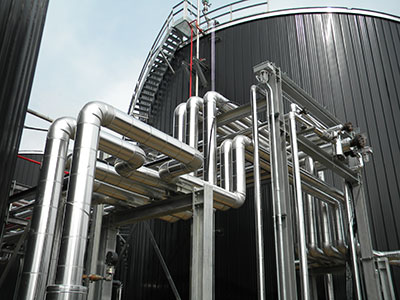Many road projects struggle with frost damage, heat loss, and water intrusion. Foam glass blocks promise a new level of performance. But do they really solve the problem?
Foam glass blocks are high-strength, lightweight materials with excellent thermal and waterproof properties. They prevent frost penetration and moisture damage, making them ideal for insulating roadways under tough conditions.

I remember working on a highway upgrade where repeated winter damage caused years of headaches. The team needed a lasting solution. After reviewing failed alternatives, I suggested foam glass blocks. Let’s break down what makes this material unique and why more engineers are considering it.
What is a foam glass?
Engineers have searched for materials that resist frost and water. Foam glass offers a fresh solution. But what exactly is foam glass?
Foam glass is a lightweight block made by heating crushed glass with a foaming agent. It creates thousands of sealed air cells throughout, making it strong, non-absorbent, and insulating.

When I evaluated insulation for a project in the mountains, many products failed because they soaked up water and broke down over time. Foam glass is different. The process begins with clean recycled glass. This glass is mixed with a foaming agent and heated at high temperature. As the glass melts, the mix foams up, creating a network of tiny bubbles inside each block. The result is a product that won’t take in water, won’t rot, and can even resist fire. Roads and highways need insulation that stays in place year after year, and foam glass has shown it can do just that. It also holds up under the heavy weight of trucks and machinery.
What is Foam Glass insulation used for?
Roadways and other structures below ground face constant threats from water and temperature swings. So, where does foam glass excel?
Foam glass insulation is used in roadway bases, bridges, tank foundations, cold storage, and other places needing strong insulation that will not absorb water or lose shape over time.
Over the years, I have worked on projects where insulation layers kept failing under traffic or wet soil. With foam glass, I found we could protect pavement foundations from ice and frost—helping roads stay smooth and safe through long winters. It stays dry, which prevents insulation breakdown. It also resists fire, making it much safer than some alternatives. I’ve seen it used under bridge approaches, in airport runways, and beneath tank bases, all with dependable results.
Are foam glass blocks good for insulation?
Many insulation materials do not last in real-world roadway conditions. Can foam glass blocks deliver?
Foam glass blocks provide very effective thermal insulation. They resist water, stay strong under heavy loads, and do not lose their shape, even after years in harsh environments.
I know from experience that insulation failures can cause roadways to crack or sag, leading to costly repairs. I have monitored road sections where foam glass was installed, and even after years of freeze-thaw cycles and constant traffic, the insulation stayed solid. It did not compress or break apart. The foam glass always kept its thermal value, which helped prevent temperature swings from damaging the pavement above. Road crews I talked to preferred this because it meant less maintenance, fewer closures, and lower repair costs.
Is foam glass waterproof?
Expecting insulation to deal with water and keep working is a tall order. Can foam glass blocks actually reject moisture?
Foam glass is completely waterproof. Its sealed-cell structure keeps out both liquid water and vapor, even when buried or exposed for many years.

I have inspected many projects where insulation failed simply because it got wet. But after installing foam glass on one stretch of road that often flooded, I came back years later to check on it. The blocks were still dry inside and just as effective as new. No swelling, no rot, and no water damage at all. It also means that foam glass blocks prevent frost heave, since there is no way for water to freeze within them. This is crucial for roads, bridges, and other structures that face harsh winters and spring thaws. Anyone who wants insulation that needs no replacement or repair should seriously consider this product.
Conclusion
Foam glass blocks are a reliable, durable, and waterproof choice for insulating modern roadways and protecting infrastructure from frost and moisture.

